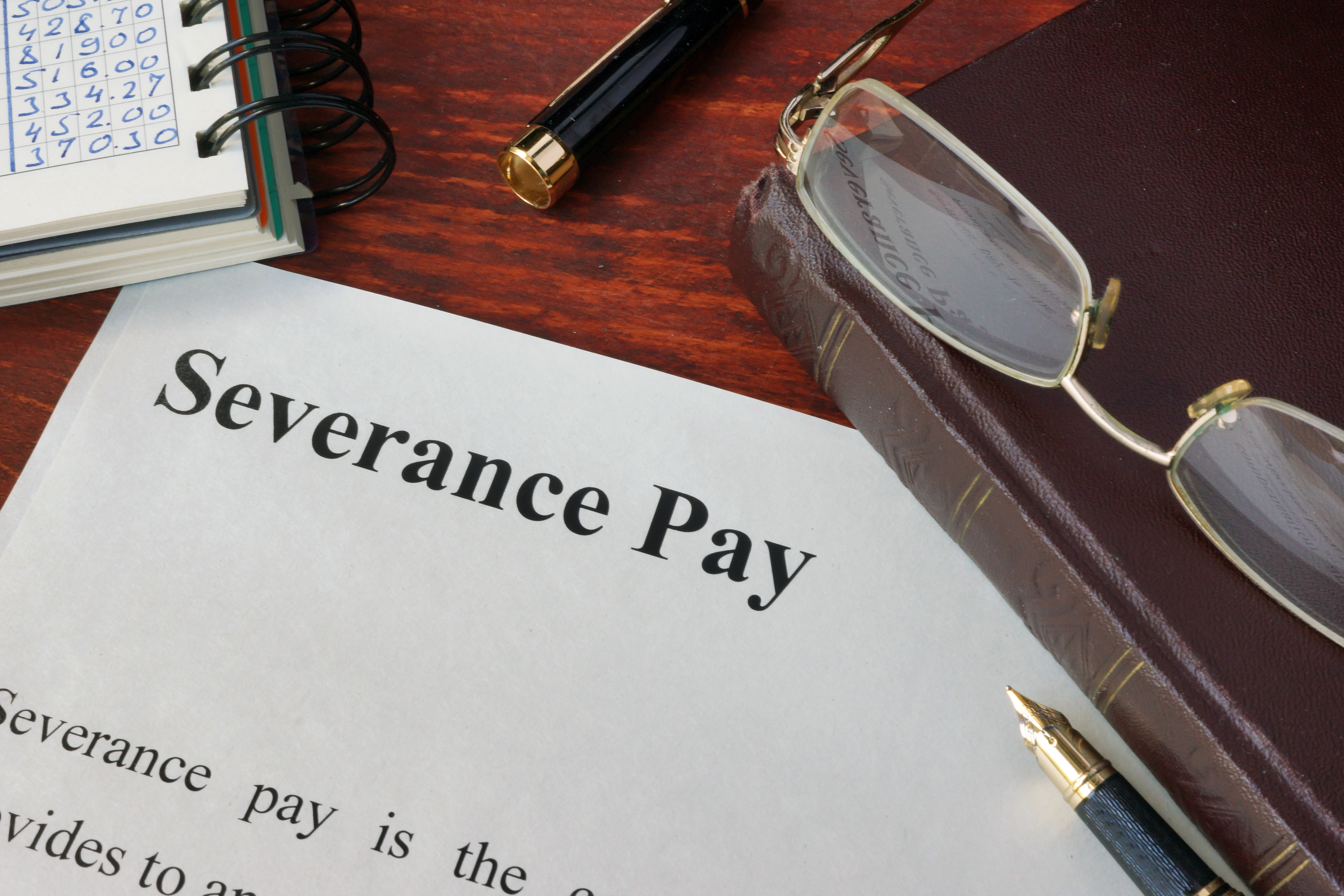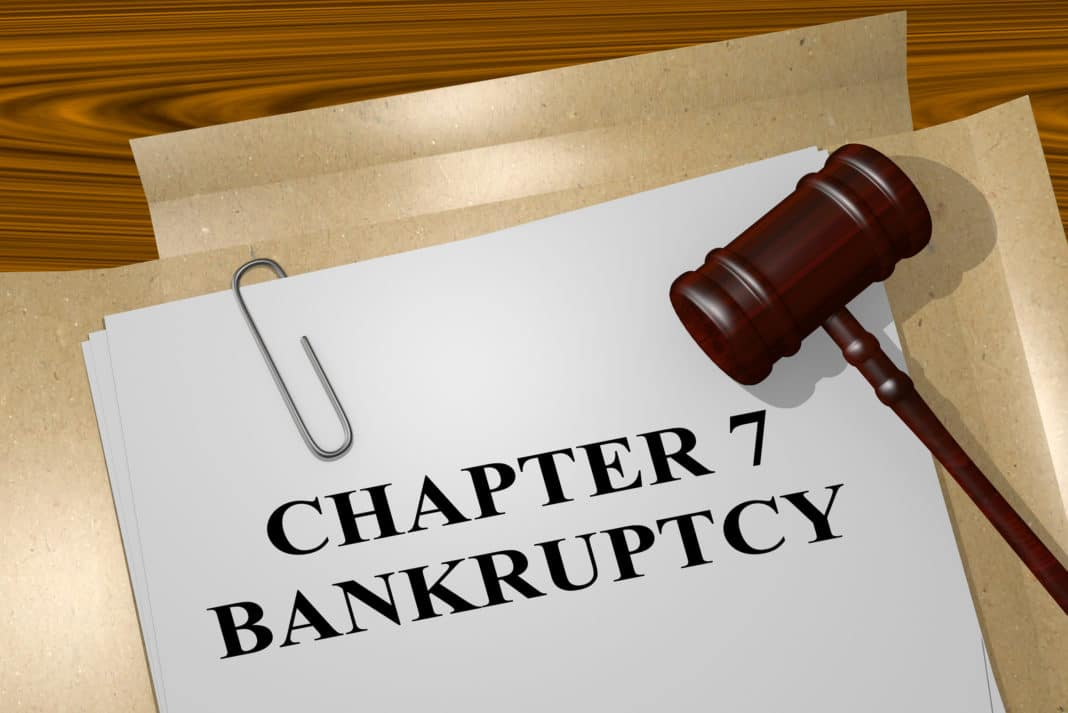Blog

As many of you have no doubt read, new laws were enacted on June 14, 2019, that will have a major impact on landlord and tenant law, housing court (residential and commercial parts), cooperative and condominium conversions. (Related topics: landlord-tenant law NYC, tenant lawyer New York, real estate lawyer NYC)
Below is the first part of my four-part synthesis of the 145-page bill that passed. If you want to discuss this with me, you can email, call or write me, I will answer your questions.
The new legislation is called the Statewide Housing Security and Tenant Protection Act of 2019 but don’t let the name fool you. The reforms impact residential and commercial landlords.
Previously, written demands were statutorily a 3-day notice. A landlord could enlarge the notice timeframe by lease provision but could not reduce the notice provision to less than 3 days. The amended law now requires a 14-day notice. For practical purposes, this means that the residential or commercial tenant has until the third week in the month to cure a default in rent payment before a landlord can commence a summary nonpayment eviction proceeding, which of course delays a landlord’s ability to address a tenant’s default.
In addition, oral demands are no longer acceptable as a viable alternative to a written demand.
In a pending nonpayment proceeding, if the tenant pays the rent at any time prior to a hearing on the petition, the landlord must accept the rent and the case is over.
In addition, the time for a tenant to answer a nonpayment petition has been extended from 5 days to 10 days. Tenant has 10 days to answer the petition which further delays the summary proceeding process.
Also created by the new law is a new requirement that if a landlord fails to receive a rent payment from the tenant within the 5 days of the date specified in the lease, the landlord is required to send the tenant a notice by certified mail that landlord has not received the rent payment. This new notice requirement is clearly applicable to residential tenants. Whether or not this new notice requirement is applicable to commercial tenancies is unknown. The notice provision is contained within a section of the Real Property Law which is directed to residential tenancies. There is currently no case law to clear up this ambiguity.
In light of the new rent laws, the need for a landlord to have an aggressive, knowledgeable attorney is of paramount importance. Not doing so will negatively affect a landlord’s bottom line. Contact Gary J. Wachtel now or call today at (212) 371-6500 and let me assist you.
Here is the second part of my four-part synthesis of the 145-page bill that passed. If you want to discuss this with me, you can email, call or write me, I will answer your questions.
The new legislation is called the Statewide Housing Security and Tenant Protection Act of 2019 but don’t let the name fool you. The reforms impact residential and commercial landlords.
By virtue on the new legislation, summary proceedings will become anything but summary. No longer an expeditious way for a landlord to collect rent, the legal proceeding can now be further delayed and extended by a tenant with little difficulty. For example, the court is required to grant an adjournment to the tenant upon tenant’s request. And the court has the discretion to grant further adjournments to the tenant.
The requirement that a tenant pay use and occupancy during the pendency of a nonpayment proceeding has been sharply curtailed by the new legislation. The landlord is required to file a written motion rather than make an oral application even when the tenant is seeking repeated adjournments to delay and prolong the action. And if the first adjournment request was to obtain counsel, the adjournment does not negatively count towards tenant’s repeated requests. Furthermore, a tenant’s failure to comply with the court’s order to pay use and occupancy can result only in the court granting an immediate trial. No longer does the court have the authority to strike the tenant’s answer and grant judgment in landlord’s favor.
Under RPAPL § 749, the marshal is now required to serve a 14-day notice before the eviction may be executed. The court has the power to vacate a warrant issued for nonpayment of rent at any time prior to execution of the eviction and even to restore a tenant to possession if the tenant can tender payment in full.
In light of the new rent laws, the need for a landlord to have an aggressive, knowledgeable attorney is of paramount importance. Not doing so will negatively affect a landlord’s bottom line. Contact Gary J. Wachtel now or call today at (212) 371-6500 and let me assist you.
New York, NY
www.garywachtel.com
How Do I Know If I Have a Medical Malpractice Suit?

When you seek care from a medical professional, you expect to be treated with the appropriate level and skills commiserate with their training and education. Sometimes patients who seek treatment are harmed in the process. However, not all bad outcomes or injuries that you sustain while receiving medical treatment are actually your healthcare provider’s fault or a cause for a
medical malpractice lawsuit. A Dayton Ohio medical malpractice attorney can explain what you must be able to prove in order to have a valid medical malpractice suit.
Standard of Care
Doctors, nurses, dentists and other medical professionals are expected to exercise the appropriate care expected of their profession. There are medically accepted standards that they must adhere to. These standards are what other healthcare professionals in the same medical field with the same skill would do under the same or similar circumstances. The first thing that you must prove in a medical malpractice case is the appropriate standard of care. You must show what another doctor would have done in the situation that led to your harm. This is usually accomplished by having a medical expert testify about the standard of care.
Breach of the Standard of Care
Next, you must point to some action or lack of action from your healthcare provider that deviated from the appropriate standard of care that would have reasonably been expected from this type of healthcare professional. Deviations may include:
Misdiagnosis of a condition
Failing to order certain tests
Delayed diagnosis of a condition
Surgical errors
Anesthesia errors
Medication errors
Failing to sterilize equipment
Providing treatment without informed consent
Your medical malpractice lawyer will have to conduct a thorough investigation and obtain your medical records. Your medical expert witness will review this information and provide an opinion about the particular way or ways that your healthcare provider deviated from the standard of care.
Causation
Next, you must establish the link between the breach of the standard of care and your injuries. Even if your healthcare provider made a mistake, you will not have a valid claim unless you can show how this mistake caused your injury. Your medical expert can also testify on this matter.
Damages
Last, you must show that the deviation from the standard of care caused you to suffer damages. Because of your doctor’s mistake, you may have required additional medical services and owe medical bills. You may have had a longer recovery time and lost wages. Your doctor’s mistake may have paralyzed you, resulting in your disability and lost earning capacity.
As you can see, medical malpractice cases are complex and require that you, as the plaintiff, be able to prove several challenging elements. An experienced Dayton Ohio medical malpractice attorney can conduct an investigation into your claim and determine whether your healthcare provider committed medical malpractice. Contact Sam Caras to schedule a free and confidential consultation to discuss your claim and determine your legal options.
Dayton Ohio Medical Malpractice Attorney
www.caraslaw.com
How a Personal Injury Attorney Can Help in the Event of a Car Accident?

When you have been involved in a car accident, it is important to surround yourself with supportive people who are looking out for your best interests. An experienced Hillsborough County FL personal injury attorney like Scott Toner can protect your legal interests while you focus on your recovery. Some of the things that a Hillsborough County FL personal injury attorney can help you after a car accident include:
Advise You to Seek Medical Treatment
In the immediate moments after a car accident, it is common for accident victims to experience a surge of adrenaline. This may mask symptoms of injuries that they do not know they sustained. Additionally, some injuries are not visibly apparent. A Hillsborough County FL personal injury lawyer
can advise victims to seek medical treatment to identify all injuries. This will help protect the value of the claim by factoring in all medical expenses related to the treatment of injuries sustained in the accident. Additionally, seeing a doctor shortly after an accident can document the connection between the injuries and the accident.
Conduct an Investigation
Hillsborough County FL personal injury attorneys can conduct an investigation into the cause of the accident to determine all liable parties and the factors that contributed to the accident. He or she can take photos of the accident scene; see if there is any video of the accident from nearby traffic cameras or business surveillance cameras and interview eyewitnesses.
Handle Communications with the Insurance Company
Insurance adjusters often use tricks to try to get you to talk to them and say things that will damage your claim. They may try to get you to give them a recorded statement or say something that minimizes your injuries. Once you retain a skilled Hillsborough County FL personal injury lawyer, he can take over communications with the insurance company while you focus on recovering.
Protect Your Interests
Your Hillsborough County Florida personal injury attorney will provide you with ongoing advice and support to help you with your claim. He or she can advise you steps you should take to protect your claim, such as keeping all doctor’s appointments, following doctor’s orders and keeping a pain journal to document your pain and suffering.
He can also explain things that you should not do. For example, your lawyer may advise you not to post on social media while your claim is pending because insurance adjusters may be looking for any little piece of evidence to use against you. He can also advise you not to discuss your injuries or accident with any third parties so that they do not get dragged into your case.
Negotiate a Fair Settlement
Hillsborough County FL personal injury attorneys work on personal injury claims every day. They understand the potential value of your claim based on similar claims. They can also ensure that all of the damages that you have sustained are considered when negotiating a settlement on your behalf.
Hillsborough County FL Personal Injury Attorney
www.tonerramirez.com
Why Are Family Business Disputes Among the Toughest to Mediate?

Mediation is an effective form of alternative dispute resolution that uses a neutral third-party mediator who facilitates communication between the parties involved in a legal dispute. The Corpus Christi TX business mediator uses conflict resolution skills to help the parties better understand each other’s positions, the repercussions of not resolving the dispute and the possible ways to amicably settle the matter. Family business disputes are often mediated, but they do represent their challenges, including:
Family Dynamics
Family businesses may have multiple members of a family working in the same business. There may be complicated family dynamics involved. A recent disagreement may simply be the last in a long line of problems that may even stem from childhood. In cases involving other types of businesses, these issues are not usually involved. Family relationships may be the primary cause of the underlying conflict. Parents and children may have different ideas about how to resolve a problem or operate the business in the future. Siblings may not stick to their assigned roles and may interfere with each other’s work.
Complicated History
Some of the members of the business may have a sordid history with each other. The problems may be long-held grievances or issues with sibling rivalry that interfere with a positive business relationship. When the family is considering strategies for the future, this may dredge up long-held beliefs about not feeling like an integral part of the business or not feeling respected. A good mediator
will try to understand the backstory involved to understand the potential sources of conflict.
Heightened Emotions
Because the business involves various family members, heightened emotions may be involved that probably would not be in a situation involving business partners who are not related. There may be issues related to children. For example, the parent owners of the company may give a larger role to one of their children. The other children may feel disrespected or invisible because of this uneven treatment.
Why Mediate?
The very reasons why family business cases are difficult to mediate are the very reasons why they should be mediated. A conscientious Corpus Christi TX business mediator like Tony Pletcher will be sensitive to the family dynamics and passionate feelings the various members of the family have. Working with a mediator can help resolve conflict before the family relationship deteriorates. By talking to the members of the family privately and collectively, the mediator can help get to the root of the problem and motivate mutual understanding before the conflict derails the business.
A Corpus Christi TX business mediator can help the family realize the strengths they each bring to the table and encourage them to brainstorm ways to resolve the current conflict. At the same time, the mediator will encourage the parties to confront some of the emotional issues that are interfering with the business management. This can ultimately result in the family understanding each other better and being sensitive of their needs.
Tony PletcherCorpus Christi TX Business Mediator
www.tonypletchermediationservices.com
What are the 5 Major Divorce Concerns for Couples who are High Net Worth?

High net-worth couples are those who have sizable assets of significant value. While they may have some of the same concerns as couples with fewer assets like deciding how to divide property or decide on child custody, they also confront challenges that are unique to their situation. The five major divorce concerns for high net-worth couples include:
Whether there is a Valid Prenup
Many wealthy Florida couples enter into prenuptial agreements before getting married. If this agreement is determine valid, it may dictate how property is divided and whether or not spousal support is awarded. Therefore, if there is a prenuptial agreement, the parties may first consider whether their agreement is valid. Even if they both seemingly voluntarily entered into the agreement before their marriage, if the terms are unfavorable to one of the spouses, he or she may try to invalidate the prenuptial agreement. A party may argue that they were under duress to sign the prenuptial agreement because there was very little time between the presentation of the prenup and the marriage, they did not have a lawyer or there was an imbalance of sophistication between the parties.
How to Accurately Value Assets
Ultimately, the assets will need to be divided between the parties. There may be significant assets to account for such as:
Real property
Real estate investments
Cars
Boats
Retirement accounts
Artwork, jewelry, coin collections and other expensive collections
Stocks, bonds and investments
These assets may need to be evaluated to determine any possible distribution. Some of the assets may be sold and the sales proceeds distributed to the spouses. However, the spouses may not agree on the stated value of the property. Professional appraisers may need to be hired. Additionally, tax treatment of certain assets may be an important factor to consider when dividing the property.
How a Business Will Be Affected
A business interest may be considered marital property. Many high net worth individuals have a business that they use as a primary or contributing source of income. It may be necessary to hire a business valuation expert to determine the value of the business. Additionally, a forensic accountant may need to be hired to review tax returns, annual statements, accounts receivable, company debt, and other evidence.
Dealing with Spousal Support Demands
If there is a disparity in the value of the assets and income of the parties, spousal support may be more likely to be ordered in high net worth divorce cases. In these situations, spousal support may be paid through ongoing spousal support payments or a large one-time lump-sum payment. There will likely be significant tax consequences to consider.
Hidden Assets
Unfortunately, hiding assets in a high net worth case is not uncommon. Spouses may hand off assets to third parties, make imaginary loans, purposefully delay bonuses or hold assets in the name of businesses in an attempt to keep these assets from the divorce proceeding. However, there can be serious repercussions for these tactics.
An Indian River County FL divorce attorney can anticipate these issues and he provided targeted legal advice and representation.
Indian River County FL Divorce Attorney
www.metcalfelaw.com
What Does My Estate Planning Attorney do After I Pass On?

After a Rochester NY estate planning attorney has met with you to prepare your will, trust or other estate planning documents, he or she will typically provide you with detailed instructions on the safekeeping of these documents, as well as how to make changes to them. He or she likely informed you to keep your will in a safe place where it would be safe from fire or other damage. Your executor may already have your will. Your Rochester NY estate planning attorney may also play several key roles after your passing.
Once your lawyer is notified of your death, he or she may provide a copy of it to your executor. Your executor will have to submit the original will to the Surrogate Court and have it established as your legitimate will. In some situations, your lawyer may meet with your beneficiaries and have a formal reading of the will in which he or she reads the contents of the will out loud to your beneficiaries. If your beneficiaries are confused about their inheritance, your previous comments are still subject to attorney/client privilege. However, sometimes people will prepare additional documents that they want their Rochester NY estate planning lawyer to read after their passing that are not made part public like a will is.
Your lawyer can also inform your family if a formal probate case will be required or not. Generally, probate estates with a value above $30,000 must be formally probated. A simplified procedure is possible for smaller estates.
While it is not a requirement, many families choose to hire the Rochester NY estate planning attorney who prepared the will and estate plan to help with them with the probate process. Many people find the probate process in New York to be complex and tiresome due to the many different legal filings and documents that are involved in this process. Many families have difficult going through this complex process while also struggling through the grieving process.
The probate process begins with filing a petition and the will with the surrogate court in the county where you resided before your passing. Your beneficiaries and heirs will have an opportunity to oppose your will before it is admitted to probate. Once the will is admitted, the executor is appointed.
The executor has several important duties to follow, including obtaining letters testamentary, identifying your probate property, creating an inventory of your property, appraising your property, notifying known creditors of your passing, notifying your heirs and beneficiaries of your passing and their appointment as the executor, paying on valid debt claims and preparing the estate income tax return. All of these steps must be completed before any property can be distributed.
With years of experience in estate planning and probate law, Ronald Axelrod is a well-respected Rochester NY estate planning attorney who can assist with these complex legal procedures. He can take all steps possible to speed up the probate process or avoid it when possible. He also assists clients to create estate plans that eliminate the need for probate. Contact him to schedule a confidential consultation to learn how he can help you.
Ronald AxelrodRochester NY Estate Planning Attorney
www.ronaxelrod.com
3 Things to Look for in a Family Law Attorney

If you are confronting a divorce, child custody dispute or other family law matter, you may have already decided to look for a Lake County Illinois family law attorney. However, there is no shortage of options. It is important to know what to look for to narrow down your choice of family lawyer. Here are the three most important characteristics to look for in a Lake County Illinois family law attorney.
Knowledge
Family law is a very complex area of the law. While some areas of the law may stay
relatively stagnant over time, there are constant changes to this area of the
law. For example, in 2019, alimony payments are no longer tax-deductible. In
2018, Illinois changed its calculation of child support to use the income
shares model, which considers both parents’ income instead of just the paying
parent which was the previous system. In 2016, the state stopped using the
terms and principles behind “child custody” and instead adopted “parenting
time” and “decision-making authority” principles. As you can see, this is a lot
of change to a number of key family laws just within the past few years. It is
critical to work with a lawyer who has a strong foundation on Illinois family
law but who are also up-to-date on the latest changes in the law so that they
can best represent your interests.
Experience
An important characteristic to look for in a Lake County Illinois family lawyer is experience. While general legal experience is helpful, the more time that your
lawyer has spent practicing family law, the better. Family law in Illinois can
be much nuanced, so it is important that your lawyer has spent a considerable
amount of time advancing these types of cases. During your initial
consultation, be sure to ask prospective lawyers about their experience, how
much time they devote to each practice area and their record of success.
Additionally, it is important that your lawyer have trial experience in case it
is necessary to litigate the issues. Ask your lawyer about the number of trials
they have had and how often they are able to resolve cases outside of court.
A Focus on What Is Best for You
When
you retain a Lake County Illinois family lawyer, your lawyer commits to
represent you zealously in accordance with the highest ethical standards. This
means that he or she must act in your best interest. While some family cases
may need to be litigated, other cases can often benefit from out-of-court
negotiations or mediation. The goal of your representation should be to achieve
your desired outcome in the most effective way possible. Therefore, look for a
family lawyer who will focus on your best interests.
Peter Wifler possesses all three of these important characteristics and is ready to help you resolve any family legal issue you are confronting. Schedule a confidential consultation with this experienced Lake County Illinois family law attorney to learn more about your legal rights and options.
Peter WiflerSalvi, Salvi & Wifler P.C.
www.salvisalviwifler.com
What Does the IRS Include in Your Estate?

After you pass away, your executor will be responsible for obtaining a tax ID number for your estate and filing an estate income tax return. For this reason, it is important to know how the IRS treats your estate at your passing. Additionally, you may be subject to the federal estate tax or the state estate tax based on the value of your probate estate. Understanding what the IRS considers as part of your estate and what is subject to estate tax is important in your estate planning. These issues are complex and require the expert guidance of a Boston tax attorney.
Probate Assets
In Massachusetts, if your probate estate is worth more than $1 million,
it may be subject to state estate taxes. This is a much lower threshold than
the $11.4 million exemption limit for individual taxpayers for the federal
estate tax. Generally, your tax liability is based on the value of your probate
estate. This is any property that you owned at the time of the death that did
not automatically transfer to another owner. For example, if you owned real
property as joint tenants with the right of survivorship with another person,
the property would pass to the other person and would not be considered part of
your probate estate.
You may have additional estate planning tools in place to minimize the value of your estate. For example, P.O.D. designations can transfer the funds in your financial accounts to the person you name at the time of your death, T.O.D. designations can transfer ownership of securities and beneficiary designations can transfer retirement fund accounts when you pass. You may have also transferred property to a trust.
Income-Generating Assets
You may have certain assets that are part of your estate that generate
income, such as CDs, stocks, bonds, mutual funds and rental property. The
income that your assets generate is also part of your state and may trigger the
need for your executor to file an estate income tax return. The estate’s gross
income is calculated similarly to how it is calculated as an individual. However,
one big difference is that your estate can receive an income distribution
deduction for distributions it makes to your beneficiaries.
Your estate may be required to make quarterly estimated income tax. Form 1041-ES, Estimated Income Tax for Estates and Trusts explains more about this process.
The estate income tax return is filed on or before April 15 of the year following the death.
Contact an Experienced Boston Tax Attorney for More Information
If you would like assistance with minimizing your tax liability at the
time of your passing or more information on how the IRS analyzes the various
assets of your estate, contact Boston tax attorney Gerard Levins. He can
provide you with targeted legal advice based on your particular circumstances
and can offer legal solutions that are tailored to your individual needs. Call
today to schedule your free consultation.
Levins Tax Law, LLC
www.levinstaxlaw.com
How Much Debt Should Someone Have Before Seriously Considering Filing for Chapter 7 Bankruptcy?

Filing for bankruptcy is usually a last resort for many consumers who have tried unsuccessfully to resolve their debts in less drastic ways. Many people reach the precipice where they must decide whether it is worth filing Chapter 7 bankruptcy as a way to get a much needed fresh start.
Unfortunately, there is not a magic number at which point a person should seriously consider filing for Chapter 7 bankruptcy because every financial situation is different. While one household may be able to pay $50,000 of debt off in a few years by reexamining their budget and committing to debt repayment, another may find this amount of debt insurmountable. Rather than picking a number out of thin air, you can look at the bigger financial picture to determine if Chapter 7 is worth it.
Below, learn about three indications that it might be time for you file for Chapter 7 bankruptcy.
1. Bankruptcy Would Provide Significant Relief to Your LifeFor bankruptcy to be “worth it,” you need to get more of it than you lose. At first, this is an easy calculation. If the amount of debt you can have cancelled is greater than the filing costs and your attorney’s fees, you are better off numerically filing for bankruptcy.
However, it is important to remember that there are downsides to filing bankruptcy. Filing bankruptcy will usually have a negative impact on your credit score. You may be denied options to purchase a home or a vehicle. You may even lose some of your property in the process.
For these reasons, it is important to speak with a Flint MI bankruptcy who can assess whether your particular situation calls for filing for bankruptcy and whether its benefits outweigh its drawbacks.
2. You Pass the Means TestAnother important consideration is whether you pass the means test. If you do not pass this test, you will not qualify for Chapter 7 and would have to consider whether you want to file a Chapter 13 bankruptcy to reorganize and pay off your debts in the next three or five years.
The means test is designed to determine if you have sufficient disposable income to pay your debts. The first part of the means test is to determine if your household income is below the state median income. Your Flint MI bankruptcy attorney can help you determine this information or you can use this chart. Then, you go through your expenses and income to determine your disposable income. If you pass the means test, your Flint MI bankruptcy can file your case.
3. You Show Signs of Financial DistressIt may also be worth filing for bankruptcy if you are experiencing financial distress that will not soon be relieved. Some signs you may need debt relief options like bankruptcy include:
You are facing home foreclosure
You are facing repossession of your vehicle
Your wages have been garnished
Your bank account has been frozen
You are behind on your bills
You are unable to afford monthly payments
You are putting all monthly expenses on credit cards
You are liquidating your retirement assets
If you are experiencing any of these signs, contact a Flint MI bankruptcy to explore your legal options.
John Sterby
Flint MI Bankruptcy Attorney
www.sterbylaw.com
What are the 5 Best Ways to Collect Invoices if you are a Small to Medium Size Business?

If your customers are late in paying you, this can cause major cashflow problems to your business. It can be difficult for you to anticipate the funds you will have available to meet your own obligations. To collect on your invoices as a small to mid-sized business, consider these five effective methods discussed below.
1. Draft a Solid ContractThe best way to prevent payment problems is to have a solid contract in place before an invoice ever goes out. Having a well-drafted contract can also help ensure that you have important provisions included in your contract in case more serious collection efforts are necessary.
Your contract should clearly discuss:
Payment due dates
How disputes are handled
Expectations regarding payment
Payment terms
Your contract may also contain language that encourages early payment or discourages late payments. For example, you might offer a discount for early payment. Alternatively, you could include a provision regarding late fees or penalties.
2. Report the Unpaid DebtSometimes customers or clients will not take the unpaid debt seriously unless there are direct consequences for non-payment. If you are working with an individual, you may choose to report the debt to the credit bureau. If your debtor is a business, you can report it to a business reporting bureau. Since this can result in the debtor being approved for credit down the line, they may be more likely to respond.
3. Turn it Over to CollectionsThere are many collections companies that will happily take over your debt collection needs. While this option may not get you the full amount of the money you are owed and there is a cost associated with it, it can be an effective way to collect on many unpaid accounts. Additionally, many of these companies operate on a contingency-fee agreement in which their charge is based on the amount of money they have actually collected.
4. Consider Alternative Dispute ResolutionYour contract may call for alternative dispute resolution such as arbitration or mediation in the event a dispute arises. Mediation involves a third party neutral professional who helps the parties better communicate in an effort to resolve their dispute outside the courtroom. This can also help clear up any misunderstandings with your customer or work out a solution to a problem, such as giving a customer who has experienced a financial setback a financial extension to repay.
Arbitration is similar to litigation, but the process is usually faster and cheaper. Additionally, the parties can choose someone with a background on contract law or business. They can agree whether the arbitrator’s decision is binding or non-binding.
5. File a LawsuitIf you are owed a large sum of money, it might be worth it to hire a lawyer to file a lawsuit on your behalf. Your Elgin, Illinois lawyer can prepare the necessary documents on your behalf and represent your interests in court.
Jonathan L. Carbary
Elgin, Illinois
www.carbarylaw.com
What Type of Bankruptcy Is Right for You and How a Bankruptcy Attorney Can Help?

If you have made the difficult decision to file for bankruptcy, it is important that you understand your options. The right type of bankruptcy for you will depend on your unique financial situation and your objectives. A bankruptcy attorney can discuss your specific circumstances and objectives to help you determine which form of bankruptcy to file.
While there are many different forms of bankruptcy, most consumer debt is discharged through either a Chapter 7 or Chapter 13 bankruptcy. There is no “right” form of bankruptcy for all situations. In some situations, Chapter 7 provides greater benefits while others may prefer Chapter 13 because of their own situation. Below, the basics of each of these bankruptcy types are discussed, along with some of the advantages and disadvantages of each option that are explained by a Peoria, IL Bankruptcy Attorney.
Chapter 7
Chapter 7 is a liquidation of assets. The bankruptcy trustee sells property and pays off as much debt as possible out of the proceeds of the sale. However, there are many exemptions under state and federal law that helps you protect some of your property. Any unpaid debt that is made part of the bankruptcy is discharged. You do not have to repay any of this debt.
There is not a cap on the amount of debt that can be discharged through Chapter 7 bankruptcy. However, certain types of debt cannot be discharged, such as tax debt, child support or federal student loans. You must pass the means test to qualify for Chapter 7 bankruptcy. This form of bankruptcy is only available to individuals with little or no disposable income.
Advantages of Filing Chapter 7 Bankruptcy
There are several advantages to filing for Chapter 7 bankruptcy. It gives you a fresh start since you get rid of most of your debt. You are also able to keep your future income. You will not be subject to hefty payments as part of a payment plan. Debts are discharged relatively quickly, often in as little as three months.
Situations to Consider Filing Chapter 7 Bankruptcy
Some situations in which you might consider filing for Chapter 7 bankruptcy include:
You have suffered a recent situation that makes paying off your debt difficult or impossible, such as divorce, a health crisis, the death of a family member or a job loss
You are unemployed and have few assets
You are underwater on your mortgage
You want to quickly discharge your debt
You want to discharge most of your debt
Chapter 13
Chapter 13 bankruptcy restructures your debt and puts you on a payment plan, usually for three or five years. It allows you to keep your property and you do not have to liquidate your assets. Any debts that you cannot pay off during the repayment plan are discharged.
Only individuals are eligible to file for Chapter 13 bankruptcy. There are caps to the amount of debt that is made part of a Chapter 13 bankruptcy filing. To be eligible for this type of bankruptcy, you must have sufficient income to make payments to creditors each month. Priority debts and secured creditors must be paid in full. Unsecured creditors must be paid what they would have been entitled to in a Chapter 7 bankruptcy.
Advantages of Filing Chapter 13 Bankruptcy
Chapter 13 bankruptcy does not require you to sell your assets, so you can keep more of your property. It can also allow you to pay off debts that cannot be discharged in a more manageable fashion. People who are morally opposed to discharging debts may feel more comfortable with a Chapter 13 filing.
Situations to Consider Chapter 13 Bankruptcy
Some scenarios to consider Chapter 13 bankruptcy include:
You want to keep your home – Chapter 13 is often used when debtors want to keep their homes. They may be able to repay their arrears during the life of the repayment plan. Chapter 13 might allow you to avoid foreclosure and possibly remove second or third mortgages to make payments more manageable.
You want to keep equity in your home – If you have more home equity than the exemption limit, Chapter 13 may help protect your home.
You want to keep your property – Chapter 7 liquidates your non-exempt assets while Chapter 13 may be able to help you keep more of your assets.
You owe taxes – This type of bankruptcy can give you more time to pay off unpaid tax debt.
Others are attached to the debt – When you file under Chapter 7, creditors who cosigned for the debt will still be liable even if you are not. Codebtors can be protected under Chapter 13.
How a Bankruptcy Attorney Can Help
A bankruptcy attorney can discuss the eligibility criteria of each form of bankruptcy. He or she can discuss the advantages and disadvantages of each option and help you determine which is the best type of bankruptcy to file for given your specific circumstances. Additionally, he or she can help to protect your assets, claim as many exemptions on your behalf as possible and work out a repayment plan that you can manage, when applicable. Your bankruptcy attorney will be responsible for filing all of the necessary documents and will work to protect your rights at each stage of the process. He or she will also work closely with the bankruptcy trustee to provide the necessary information in a timely manner and to ensure you are compliant with the bankruptcy process and its regulations.
Contact Charles E. Covey Attorney at Law for Help with Your Bankruptcy Case
If you would like help deciding which type of bankruptcy to file or other aspects of your bankruptcy case, Peoria, IL Bankruptcy Attorney Charles Covey can help. Mr. Covey has practiced bankruptcy law for more than 30 years and dedicates his practice exclusively to bankruptcy and debt relief matters. He has helped thousands of clients file Chapter 7 or Chapter 13 bankruptcy. He can consult with you about the best type of bankruptcy to file based on your specific circumstances. Contact us online or call (309) 674-8125 to schedule a confidential consultation.

